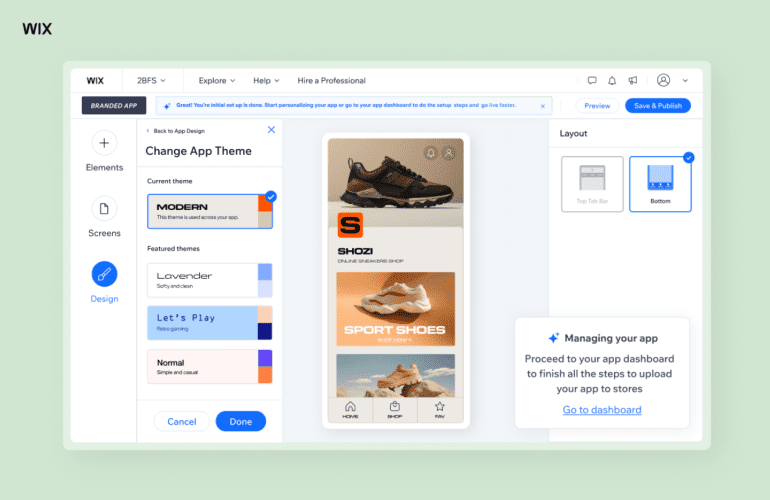- Wix introduces AI feature for iOS and Android app creation, simplifying the process through plain language input.
- The AI tool generates customizable apps, integrating first- and third-party elements, expanding on the success of Wix’s AI website generator.
- Available through Wix’s premium Branded App plan, users can control branding, layout, and features, with a preview option before app store submission.
- Concerns linger about security vulnerabilities associated with AI-generated code, despite reassurances from Wix’s CEO.
- Wix aims to complement rather than replace developers, emphasizing deep integration with existing products and features.
Main AI News:
Wix, renowned for its web design prowess, unveils a groundbreaking AI feature aimed at simplifying app creation for iOS and Android platforms. This innovative tool empowers users to articulate their app vision in plain language, guiding them through a chatbot-like interface to capture the app’s goals, intent, and aesthetic. Scheduled for release this week within Wix’s app builder tool, this capability leverages AI to generate customizable apps, seamlessly integrating first- and third-party elements.
This initiative follows hot on the heels of Wix’s AI website generator, introduced last July, which revolutionized website creation by generating site templates based on descriptive captions. Avishai Abrahami, Wix’s co-founder and CEO, emphasizes that these AI-powered solutions epitomize Wix’s commitment to delivering bespoke AI solutions, facilitating swift digital experience deployment.
“The essence of Wix has always been democratizing online presence creation, extending seamlessly into mobile apps,” remarked Abrahami in an interview with TechCrunch. “Our foray into AI reflects our deep understanding of user interaction dynamics in the online realm.”
Empowering Users through AI
Wix’s AI-powered app builder, available through the premium Branded App plan at $99 per month, generates fully native app code for iOS and Android platforms. Users retain control over branding, layout, and features, including icons and themes, with the ability to preview their creations before submission to app stores. Abrahami asserts that the AI’s effectiveness hinges on users’ detailed responses during setup, promising a personalized app experience.
While Wix’s AI website builder received mixed reviews initially, Abrahami remains optimistic about the app builder’s prospects, citing overwhelming positive feedback and robust utilization. However, skepticism lingers regarding the app builder’s efficacy, given prevalent concerns about security vulnerabilities inherent in generative AI tools.
Navigating Security Concerns
Despite reassurances from Abrahami regarding Wix’s commitment to ongoing product improvement and security measures, doubts persist regarding the reliability of AI-generated code. Studies suggest that generative AI tools may exacerbate existing bugs and security flaws in codebases, raising questions about the potential risks associated with widespread adoption.
Addressing Concerns and Charting a Path Forward
As Wix ventures into the realm of AI-driven app development, questions arise about its impact on traditional app development firms and solopreneurs. While Abrahami maintains that Wix’s aim isn’t to supplant developers but to offer an alternative, the implications for the industry remain uncertain.
Wix’s deep integration of its AI tools with existing products and features, coupled with robust security measures, underscores its commitment to providing users with a seamless app creation experience. However, the coexistence of AI-driven solutions and traditional development approaches suggests a nuanced landscape where both avenues have their place.
Conclusion:
Wix’s foray into AI-driven app development marks a significant milestone in the market, promising to streamline the app creation process for users. While concerns persist regarding security vulnerabilities, Wix’s commitment to ongoing product improvement and integration with existing offerings underscores its potential to reshape the app development landscape. The coexistence of AI-driven solutions and traditional development approaches suggests a nuanced market where both avenues have their place, catering to diverse user needs and preferences.

